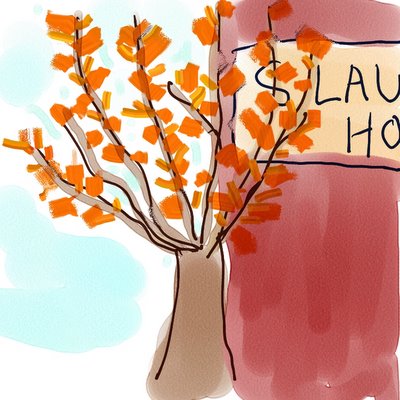There is a small but significant subclass of society whose job it is to go on TV or radio and pontificate and prognosticate about the economy and the current unemployment situation. In some cases they're doing this to actually promote some other agenda:
my candidate / group / party is correct, see how their policies are working / see how the other party's policies aren't working / see how our predictions have come to pass. Other times, I am convinced, these are people who are in a blind panic, realizing that they are one executive decision away from joining the ranks of the unemployed, knowing that unless they spout some blather that sounds convincing, they'll be out on the streets looking for work themselves.
Time and time again I hear the same tired statements come up, like some "most dangerous virus ever" scam that keeps showing up in your in-box no matter how many times you tell people to
check this damned stuff on snopes already. These myths are popular, persistent, and wrong - but they're easy to repeat, and repeating them sure beats thinking.
-
X weeks of unemployment is enough. I hear this one from both sides in almost every discussion.
Sure, the economy is terrible, there are 15 people looking for every job that's available, but enough is enough. After X weeks of unemployment anybody
should be able to find a job.The ugly truth is, after an individual has been out of work for a certain amount of time - six months is the number most often quoted - the difficulty of them finding a job goes up exponentially. Perhaps they are judged to be worthless losers, with the stink of failure on them; perhaps companies figure that any job skills they might have had are now completely stale and untransferable. And the reality is, our system is not set up to provide unemployment benefits to everyone who finds themself unemployed for an extended period of time during an economic situation like the one we're in. After a certain amount of time, you're
supposed to lose your house, supposed to lose the ability to send your kids to school, or to feed them or clothe them or do anything else. After a certain amount of time, you're supposed to become homeless, and stop being a burden on the government and instead become a burden on charity agencies. Or better yet, just relieve society of the burden of worrying about you.
Truth be told, X weeks of unemployment is not enough, not in this economy. After six months of unemployment, benefits may need to last indefinitely, unless companies change their hiring policies.
- Recession? What recession? That ended years ago. I keep hearing this one, and it always makes me laugh. The "Recession," as defined by economists, began at some specific date following so many quarters of negative economic growth - and then ended after some other technical milestone was achieved. I know people from Northeastern Pennsylvania who are still in touch with Northeastern Pennsylvania but work for the federal government inside (or just outside) the beltway. And the talk around the water cooler there is all about how the Great Recession is a thing of the past, and things are looking much better now. And in fact, things are doing very well in this particular industry, though the failure of the Supercommittee is supposed to trigger some automatic cuts there that probably won't happen. And if my friend should bring up the misery and hardship being experienced by people back in Northeastern Pennsylvania, such remarks are met with glares or rolling eyes.
Of course a bunch of hick coal crackers are going to have it tough. There's winners and there's losers, baby, and we're winners, and they're losers. Deal with it.
- Only core inflation matters, and it's holding steady. I love
Paul Krugman to death. He's funny, he's smart, and he's been doing his damnedest for years to get the economy turned in the right direction, building up a following that has dubbed itself Krugman's Army (
a la Dumbledore's Army.)
I created a very popular demotivational poster of him that has been posted around the internet without attribution for quite some time and was responsible for
many paragraphs of pointless bickering over on digg.com. But I disagree with him strongly over his focus on
core inflation. Core inflation is inflation minus the highly volatile food and energy components. With food and energy factored in, inflation is all over the place. Without food and energy factored in, inflation seems to display trends that are rational, predictable, and can be dealt with by statistical methods.
The problem, of course, is that food and energy are very significant to most people, what with their need to eat and, you know,
do things.
That's not the only problem. In Pennsylvania and elsewhere, cost of living adjustments (COLAs) for senior citizens and others on public assistance are based on core inflation. For many years core inflation has remained constant, or even dropped - in any case, it has not increased enough to trigger a cost of living adjustment for the poor and the elderly, which, as noted before, is fine as long as recipients aren't counting on this money to pay for food or heat or electricity. Meanwhile, state legislators just received a COLA of their own, based on a law passed over a decade ago which they are powerless to do anything about. Interestingly, their COLA is
not based on core inflation, but includes the volatile (and allegedly ignorable) food and energy components. Because apparently state legislators need to eat more than little old ladies.
(Many legislators have nobly opted to turn down this raise, powerless as they are to actually do anything about it; they will turn over the increase in their paycheck to local organizations. However, as one newspaper pointed out, their
pensions will be based on a figure that factors in the pay raise, whether they want it or not.)
- The unemployment rate is X.X%. Now, this has to be qualified as "one of those things I heard somewhere" - in this case, on NPR a few months ago: the unemployment statistics you hear tossed around every month are not based on hard data gleaned from looking at unemployment records. It's based on a monthly survey, a statistical sampling of workers that asks if they are working, if they are looking for work, or if they have given up looking for work. From those survey results statistical analysis techniques are applied to derive a figure that, in theory, corresponds to a real world figure - which is then dutifully reported with decimal-place accuracy. Not that it really matters: "real world" data ignores a lot of realities, too. People who are no longer eligible for unemployment benefits are no longer considered unemployed. Nor are people working for a fraction of their previous income, or those working part-time jobs when they're seeking full-time employment. An engineer working at a deli counter is still considered employed; if that same engineer were to decline to take a job working at a deli counter, he would be considered
not unemployed, because his unemployment would be a matter of his own choice.
Active-duty members of the military are considered employed, too. Which is something many people forget: as taxpayers, they are employers as well - of the entire federal government, and of the military it maintains. (In a sense, the September 11th hijackers can be considered "job creators," since their actions have resulted in massive increases of employment in the military, Homeland Security, and throughout the federal government.) But in just a little while, many of these folks we be coming home and finding themselves no longer on active duty. Some of them will return to jobs that have been held for them during their time of service. Some of them will take advantage of preferential hiring policies directed towards veterans - which will, of course, make job searches for non-veterans even more difficult. But many of them will find themselves being suddenly added to the ranks of the unemployed.
I don't agree with a lot of what Ron Paul has to say. Sure, he's popular with the kids, and sounds like a real spitfire, but when you get down to it - well, this is a guy who named his son after a social theorist who built a philosophy around greed and contempt for the common man. But as he pointed out recently, the current unemployment figure (whoopee! it's something like 8.6%, or 8.5712679%, or whatever) is completely bogus and is based on gimmicked factors; he stated that certain economists have confided to him that the true unemployment rate is currently something like 23% - which, honestly, feels a bit closer to reality. But which figure really is?
- The economy is adding jobs! Different pundits will slice and dice and spin the issues differently, and the increase in jobs is a big favorite. From one point of view, a job is a job, whether it's a VP or CEO or shoe-shine boy or mall Santa Claus. During the national census in 2010, many people rightly pointed out that increases in federal jobs were mostly due to hiring of census workers. Is anyone feeling particularly smug about an uptick in hiring in November? While an increase in temporary sales staff, gift wrappers, and Santa and elves atthe local mall may truly be a positive indicator for the economy, it doesn't do much to change the overall jobs picture in the long run.
A better statistic to see would be a histogram of incomes. How many people are earning $10,000 - $20,000? How many are earning $150,000 - $160,000? How much has this histogram shifted in the past year? In the past decade (adjusted for inflation)? Of course,
this data is available. But data is for wonks. The common response to data from a TV audience just waiting to see the latest episode of
Swamp People or
Bachelor Pad or
Teen Mom is MEGO - "My Eyes Glaze Over." So the statistics are distilled into meaningless but easily digestible sound bites.
- People would rather stay on unemployment than work. Hey, you know what? This one is true. Sort of. A person who previously earned $N a year probably won't leap at an opportunity to earn $N/3, particularly if they're currently getting $N/2 in unemployment compensation. That's just good business sense. Of course, all those $N/year jobs have probably gone away - most likely overseas, to where people will work for $N/1000 a year.
Like it or not, downward mobility is now a fact of life, and many people will soon find themselves searching vigorously for jobs that pay a fraction of what they had previously earned. Back during the booming days of the Clinton Administration, it was easy to believe that our economy and society were on an upward trajectory that was sustainable and unstoppable. This may have helped spell doom for the Gore campaign. By rights, Al Gore should have won in a landslide, promising a continuation of the policies that had ushered in a new golden age of prosperity. But candidate Gore didn't run on that platform. Instead, he was the guy who was going to tell you to do your homework, and eat your vegetables, and put on a sweater, and turn off the lights when you leave the room. Bush, on the other hand, was a Rich Guy, and a lot of everyday citizens were looking at their 401k's and thinking "Hey, I'm a rich guy now, just like him, so I'd rather vote for the candidate who I can relate to, the candidate who's going to help me stay rich!" And so a lot of people who really didn't care that much one way or another let the prospect of having this Rich Guy at the helm guide their fingers in the voting booth. Unfortunately, it turned out the Rich Guy was more concerned about other Rich Guys than he was about all those middle-class folk who just
thought they were rich. For the first 234 days of his presidency he worked on ways of showing his appreciation to his fellow Rich Guys - and after that, all bets were off as the nation fell into the economic trap sprung by the attacks of September 11, 2001. It's been downhill from there - for most of the country, anyway.
Economic disparity has increased since then. The rich have gotten richer, the poor have gotten poorer, and many more of the middle class have found themselves joining the ranks of the poor than ascending to the mansions of the rich. The poor have very little discretionary income to invest, while the rich often choose to spend their discretionary income in ways that do not directly benefit the U.S. economy. (Or even
indirectly benefit it, if they're clever enough about avoiding taxes on their purchases.) Cheap foreign goods fill the megastores owned by the rich and patronized by the poor. Comparable goods made in America would cost several times as much - a reflection of the income disparity between employees of U.S. and foreign manufacturing.
The result is the new normal. Jobs that pay well have gone away. Income at the jobs that remain is much lower than job seekers want, though it is much higher than what employers would like to pay.
- Last month's figures have been adjusted, and we're doing better than we thought! I heard this one yesterday and nearly did a spit take. Not only did the make-believe employment statistic for November show that things are suddenly great, but adjusted figures for September and October showed that we had actually previously been doing better than we thought. One of the people being interviewed nearly wet his pants with joy over this. So apparently, any suffering experienced in September and October was just a mass delusion of sorts.
- The key to finding a job is networking! This isn't so much a myth as a massive oversimplification. Networking is a social function, though the sort of networking we're talking about here has a good deal of intentionality overlaid on it. But like many human activities, and like most social skills, this is something for which some people have an aptitude, while others do not. For some people networking comes easily, as easily as striking up a conversation with a stranger or speaking in public. These people are often drawn to cocktail parties and chit-chat, and see networking as perfectly natural. For other, less extroverted individuals, the thought of networking, especially with the intentionality that is required to establish the sort of network that would be beneficial in finding a job, is cripplingly terrifying.
And not all networks are created equal. If you've grown up amongst the country-club set, you likely already have access to a highly valuable network of individuals cultivated over the years or even generations. Finding yourself unemployed is not much of an issue if your father grew up with the father of the right people, or if you know someone who can see to it that the right doors are opened, the right introductions are made, and the right ears are whispered in. For the rest of us, you may find that your list of "friends" on Facebook just isn't going to cut it. Yet attending a LinkedIn mixer may not be quite so valuable if you find it impossible to get access to the appropriate cliques and circles. Establishing a useful social network may require as much groundwork and research as - well, as finding a
job once took. And once you've met and connected with the right people, you're still just at square one.
This isn't to say that networking isn't valuable, or won't pay off. It is, and it might. But it's not easy. It will take a lot of work, unless you're one of those lucky individuals who was born into a social network, or who,
like Radiohead asserted, finds that meeting people is easy.
- Everybody needs to become an entrepreneur! I heard this assertion once made by one of the guest-of-the-day talking heads on CNN. It sounds brilliant and simple:
no one gets rich working for someone else. And even if you are working for someone else, you need to be CEO of yourself.
The problem is, again: entrepreneurship is a skill, a skill for which not everyone has an aptitude. It turns out that this is a testable skill. I tested for it, and it turns out my aptitude for entrepreneurship is nearly non-existent. I can do backbreaking grunt work; I can tirelessly hack away at tedious and meticulous details of complex problems; I can creatively come up with new ideas and better ways of doing things; I can relate to people across a broad spectrum. But if I were to open up my own shop it would probably fail miserably, at least according to this test. And my own experience has borne this out: Years ago I started the site
NEPA Blogs - I've
told the story several times before. But eventually I just let the site slide into near-disuse. Earlier this year, Michelle Hryvnak Davies, one of the co-administrators at the site, took it upon herself to revive NEPA Blogs and shift things into high gear. And since then we've been going full-steam - not just with a revitalized site, which is now adding more blogs in most months (thanks to Michelle's detective work with Twitter) than we had previously added in entire
years, but also with an appearance on ComputerWise TV, a half-hour radio program that may soon become a regular show, and a weekly spot on the local lifestyles program
PA Live! (Monday-Friday on WBRE from 4:00 to 5:00; our bit is on Tuesdays around 4:30.) None of this would have happened if I were doing it on my own. But in response to the things Michelle has done, I have found myself doing things far beyond what I ever thought possible. (Maybe one of these days I'll even get on Twitter.)
- The long-term unemployed are lazy and shiftless losers. Looking for a job isn't easy, even in the best of times. And these sure as hell aren't the best of times. But looking for work, day after day, sending out resumés and applications and not hearing anything back, or getting a response and a job offer for a fraction of what you think you should be earning, a fraction of what you
had been earning - this has a way of grinding you down. It gets very discouraging and depressing, especially when you're throwing all your efforts into a job search and just coming up with the same job listings, day after day, week after week - and occasionally you see a promising prospect and leap at it, only to find that it's a job you've previously applied for.
It was very strange watching these talking heads on TV and realizing that most if not all of them are enjoying incomes in the six figures, in positions that are relatively secure, leading lifestyles that are for the most part insulated from the effects of the economic downturn. For them this situation is mostly theoretical, just another topic of conversation, one that they hope will result in good ratings. I wonder how the tone might change if they realized they were about to lose their jobs, and their incomes, tomorrow?










































































